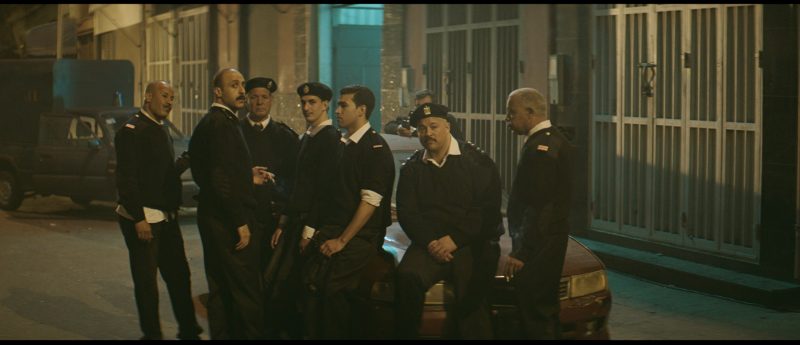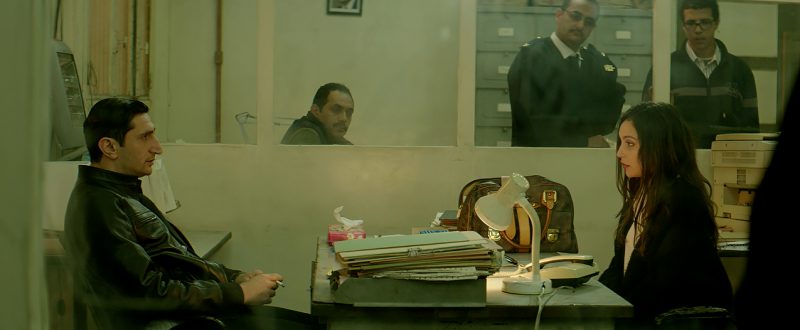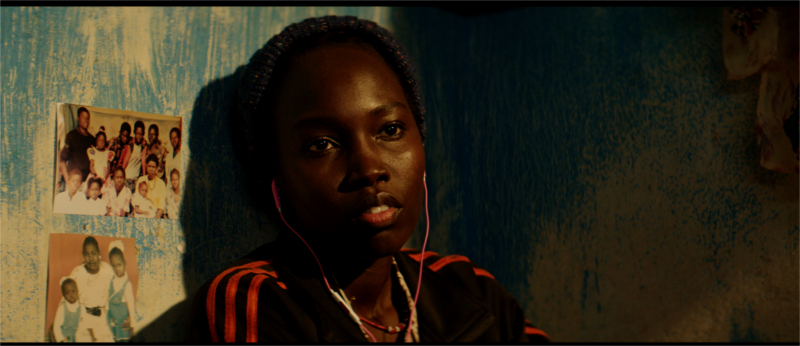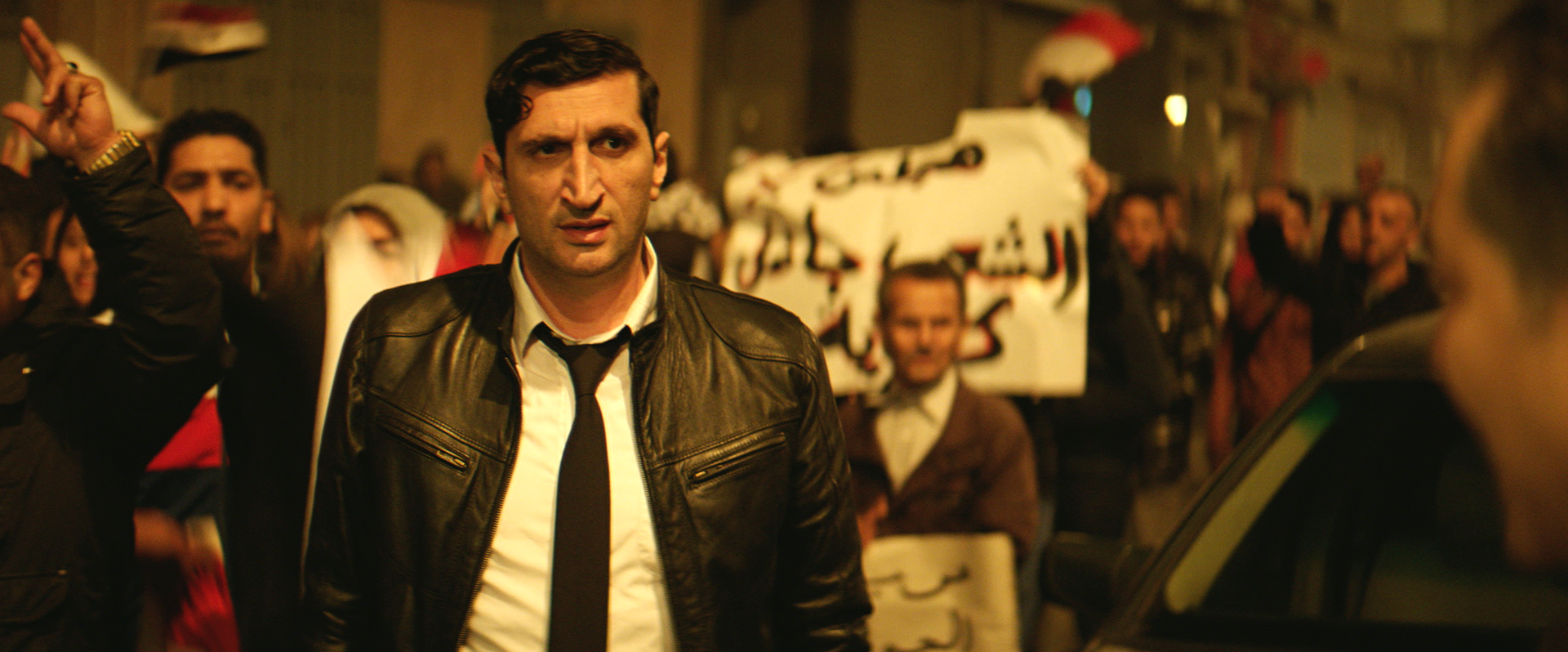The Nile Hilton Incident is a dark and politically engaged Egyptian film noir following the story of a corrupt cop who is called to investigate the murder of a famous pop singer amidst the lead up to the 2011 Arab Spring protests (Winner of the Grand Jury Prize at Sundance Film Festival, 2017).
Fares Fares (Zero Dark Thirty, Safe House) plays Nerodine, a detective about as hard boiled as they get. There is literally not a single scene across the entire film in which he is not smoking or, at the very least, lighting a cigarette. Nerodine reinforces himself as a classic film noir trope at every point. Soon enough, among his shady deals and silent, brooding stares, we discover this lone wolf is really quite kindhearted, and it’s a tragic past that drives him to both isolation and corruption.

The Nile Hilton Incident, 2017. Image: Supplied
While a murder mystery forms the film’s premise, it quickly diverts from this as a central concept as it seems to be merely a catalyst for a broader plot line. In fact, TNHI juggles three connected plot lines at once, and while each is in itself an engaging one, their synthesis takes a while to come to fruition. This results in a relatively slow pace for the first three-quarters of the film as we don’t have a hard time guessing what Nerodine struggles to realise. At points, it felt like we were just waiting for him to catch up.
Though once the separate subplots and their respective characters do meet, everything picks back up. The tail end of the film is riddled with suspense, intrigue and genuine surprise as events begin to spiral out of Nerodine’s control.

The Nile Hilton Incident, 2017. Image: Supplied
What’s impressive about TNHI is its ability to craft characters that yield genuine empathy and emotional investment from the audience despite minimal screen time. This is most evident with Salwa (Mari Malek), a Sudanese refugee whose witness of a grisly murder places her in grave danger. We see relatively little of her across the film, but by its end we desperately want her to have the security and opportunity she has consistently been denied. Momo (Mohamed Yousry), too, is so easy to care for because he is the films small glint of happiness; a charmingly naïve young cop who just wants to meet girls on Facebook, and doesn’t seem to belong in the dark and corrupt world he works in.

The Nile Hilton Incident, 2017. Image: Supplied
Corruption is at the centre of this film; so imbued within every level of its plot that neither we, nor its characters, can escape it. Director and writer Tarik Saleh has not been subtle about his critique of the Egyptian government, representing a state that is truly rotten to the core as Nerodine is met with crime and deceit at every turn. Despite forming the political context for the film’s setting, the Arab Spring protests do not form a central part of the plot, but the tensions bubble underneath the surface before breaking through to form its dramatic end. The final image is an incredible yet foreboding shot of an enormous crowd of protesters flooding the streets of Cairo as the Arab Spring begins to take hold of the city. Saleh does not attempt to comfort his audience, leaving us with only the image and the historical knowledge to understand the brutality that awaits this hopeful crowd.
Despite it’s somewhat slow-paced start, The Nile Hilton Incident proves itself as an engaging and potent film, providing an insight into of the most tumultuous periods of recent history through the catalyst of a classic film noir storyline. Its strong cast and sense of realism makes this film an intriguing and topical one, capturing a perspective on history that is certainly worth listening to.
To see more of what’s playing at the Sydney Film Festival, see the full the program here. And for more of all the non-film events, look here.


